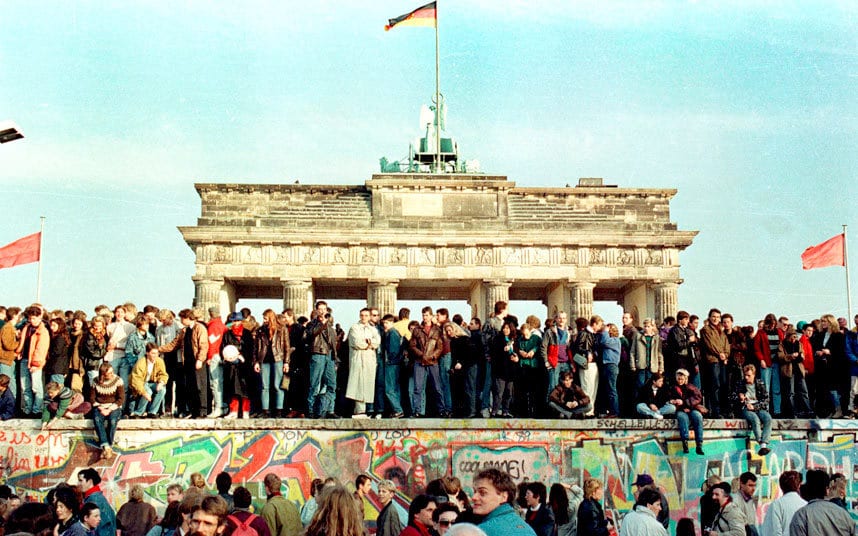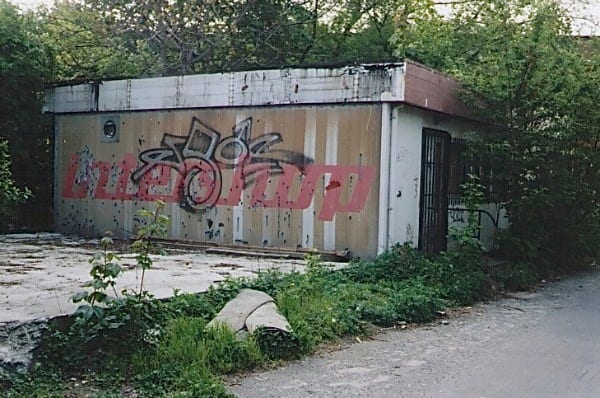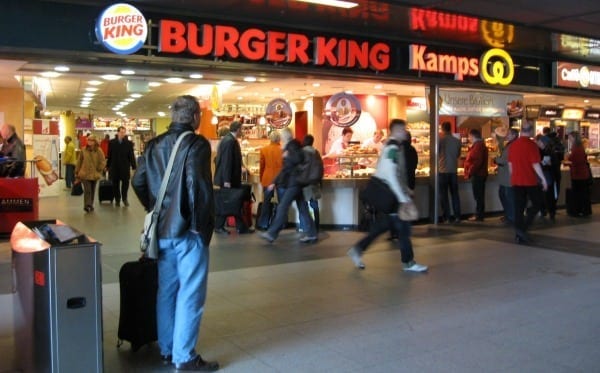There are moments in history that, upon mere mention, conjure up vivid memories of where we were at the time. Most of us remember every detail of what we were doing and how we felt as we watched the events of 9/11 unfold, or heard that JFK had been shot, or saw the white Ford Bronco being chased.
The fall of the Berlin Wall is one such moment for me. Not only was it an historic event that I was lucky enough to witness up close, it also represents the start of my path to small business ownership.
In September of 1989 I was a junior at Seattle Pacific University, en route to West Berlin for the start of European Quarter. Some of us were French students, others German; our visit was split between the two countries. As it turned out, we couldn’t have picked a better time to be in Europe, especially Germany.
While I cherish every moment of that trip, I am most grateful for the time I spent in the former Soviet satellite state of East Germany, or the GDR as it was known at the time. Not only was it my first and only experience of Communism, my time in the GDR ignited a fierce love of business that is with me today.
Here are four small business lessons from the Berlin Wall in 1989:
1. Embrace competition. It will force you to be great.
What immediately struck me about the GDR was how drab the place was. It was a place filled with sameness, almost completely lacking in color. It seemed like everything was gray: the clothes, the streets, the buildings, the food, even the people. My memories of time spent in the GDR are in black and white.
We used to laugh about Soviet-style uniformity back home, like in this Cold War commercial for Wendy’s. But the reality of living with the bleakness, even for a few weeks, wasn’t funny.
It took me a while to realize that what was missing was the beating heart of a competitive marketplace. Never mind the fact that your shopping choices were pretty much nil, the people seemed plagued by apathy and sullenness. There was no hustle and bustle, no vibrancy, no sense of urgency that things needed to be created and done in the world.
One day, after eating the same afternoon meal for the umpteenth time (our visit was entirely scripted by the government, with no deviation) I caved to the temptation of an Intershop.
Intershops were small, government-run retail outlets that only accepted hard currency and sold “high quality” goods. The shops were mainly for tourists, as the average GDR citizen couldn’t shop there with their all-but-worthless East German marks. Our group was warned repeatedly not to give our hard currency to anyone if asked. I felt guilty walking into an Intershop, but I needed some normalcy, if only for a moment.
Intershops were incredibly modest establishments by American standards. That jarred pickles, colorful knickknacks and toothbrushes could be considered “high quality” items seems unthinkable, but such was the case at the time. I bought a bottle of orange juice and a package of M&M’s. The clerk glared at me. I got more dirty looks from passersby on the sidewalk as I walked out. That was my first and last visit to an Intershop.
Whenever I find myself loathing the competition, or disgusted by the lengths to which corporations — and people — will go to to “win,” I remind myself that the absence of a competitive marketplace is far worse.
2. Marketing is not only essential, it can be beautiful.
During my three months abroad I only cried once. Here’s what happened.
If you ask me how long we spent in Paris, I can tell you it was about ten days. If you ask me how long we were in the GDR, things get a little foggy. I think it was about two weeks, or maybe it was a year. Regardless, as we neared the end of our visit I was more than ready to leave.
We left for the west from Erfurt and crossed the border at Eisenach on September 30, 1989. The train stopped for what seemed like an inordinate period of time. After two weeks in the GDR we’d gotten used to waiting for mysterious reasons, but this time the reason was clear: Armed soldiers were inspecting every inch of the train for anyone trying to escape to the west.
It was a struggle to process what was happening. I felt like an extra on a movie set, wondering “is this for real?” The experience went from surreal to gut-wrenching when I looked out the window and saw soldiers with mirrors and German Shepherds searching for anyone who might be clinging to the underside of the train.
By the time we finally crossed into the west my freedom-loving American soul was in tatters. I remember feeling both relieved and exhausted as we disembarked. I sat down on the ground in the main thoroughfare of the train station and leaned against the wall, my backpack still on. When I eventually looked up to take in my surroundings the first thing I saw was a neon Burger King sign.
I started to cry.
I thought about that moment for years. I’m not prone to emotional outbursts of any kind (typical for an INTJ female). What was it about that silly Burger King sign that brought me to tears? I think it represented so much to me in that moment: it meant home, freedom, beauty, commerce, happiness, color, creativity. It was in that moment that I first came to realize how much I loved business — the energy and necessity of it — and our right to freely engage in business endeavors.
It’s been a long journey from that day in the train station to today. But I will always consider that Burger King sign in Germany as ground zero of my passion for business.
3. Remember the past. Don’t get stuck there.
It wasn’t uncommon to be walking through a city in the GDR and wind up on a street that looked like it hadn’t been touched since WWII. There they were; bombed out buildings with scorched walls half standing, silently trapped in a time warp.
One day we listened to a lecture in Dresden from a woman who had lived there her entire life. When she got to the part about the Allied bombings in 1945, she became more and more angry. Her hatred was so palpable you would have thought the bombs had just been dropped yesterday…by me and my fellow students.
The extent to which people can stay stuck in the past is astounding. If you’re stuck in the past you can guarantee that others will have found a way to move forward, leaving you in the dust.
While we were listening to that woman’s lecture in Dresden in September of 1989, thousands of her fellow GDR citizens were making their way to a new life through a gap in the Iron Curtain via Hungary.
4. Smart people can be dead wrong.
We had the opportunity to meet with several professors and journalists during our time in Germany. As a group we had many conversations with Germans about when they thought the Wall would come down. Everyone — in both the east and the west — said emphatically that we would not see it in our lifetime.
While these dire predictions were being made, a peaceful revolution was well underway. It would not be a lifetime but just a matter of weeks before the Wall would crumble, and (the truly unthinkable) David Hasselhoff would give a concert atop the rubble.
Our little band of students was in Dijon, France when the Berlin Wall came down. As soon as the news broke, two students from our group got on a train to witness history in the making. Upon their return a few days later they seemed slightly disappointed, summing up the mood and events as “we came, we saw, we shopped.” After my Intershop experience in the GDR, I wasn’t surprised by the Black Friday door-buster mentality that ensued. It was high time to put down the rifles and replace them with shopping bags.
When I think of the Berlin Wall it represents a number of things to me, as I’m sure it does to millions of others. But when I reflect on its fall in 1989 a simple thought comes to mind: It was a time to stop looking back, and start doing business.





